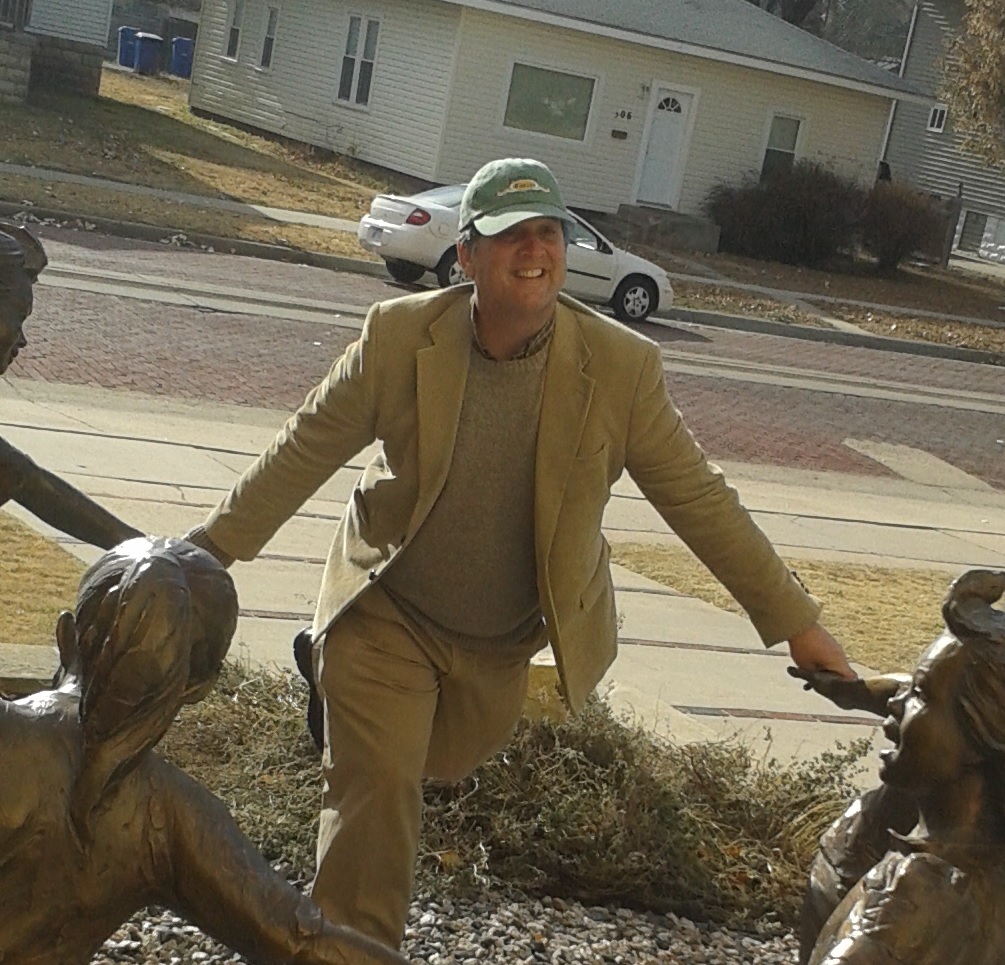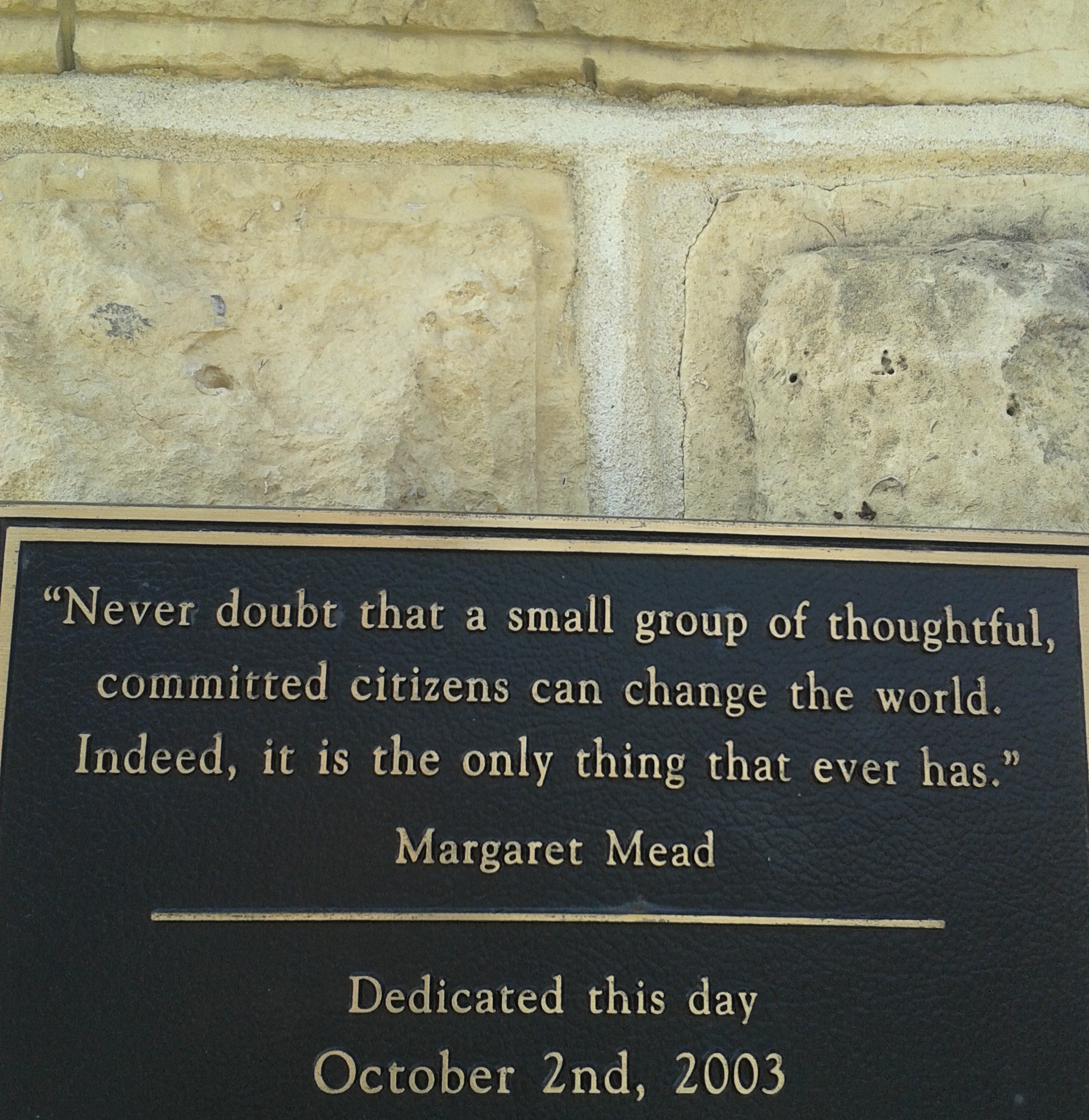
Fall into Winter 2014
Are We
Arrogant?
by Dave
Hopkins
Diversity
Showdown
by Robb
Scott
What Makes
Groups Click?
by Robb
Scott
![]()
/Index/
/Letters/
/Profiles/
/Search/
/Podcasts/
![]()
Subscribe
for free!

Successful Collaborations
Developing Social Communication Skills
By Robb Scott
Photo by Heather Giselle Scott
If there is one thing I have seen more than a few times in my career, it is what working groups look like when they are falling apart, splintering into bickering, defensive, and ultimately dysfunctional behaviors.
The Value of Reasoned Discourse
Fortunately, my early training as a teacher took place in a healthy setting elegantly run by my first boss, Elizabeth Soppelsa, who knew how to empower her employees while still making it clear who was really in charge. If you wanted to question a policy at the Applied English Center, in Lippincott Hall, at the University of Kansas, all you had to do was to say so, directly to her, and be sure you had a solid rationale to present for your new idea. I have known only a handful of professionals who could organize a conversation about potential changes as an exercise in civil discourse, where only reason and logic counted and no one felt any emotional attachment to routines or traditions. Every semester, a curriculum committee would start to sort through the dozens of new textbooks on the market, and initiate the discussions that led to consensus on the many innovations that came with each new enrollment. It takes a well-stocked coffee maker and an open approach to conversation to maintain the level of rational interaction that persisted in Betty Soppelsa's shop. It also takes optimism and faith in the good will of your fellow workers.
Rescuing a Project with Honesty
Five or six years earlier, when I was a senior in high school, I experienced a rocky dynamic on a group of 13 of us who were working together on our school yearbook, luckily under the supervision of John Mohn, the journalism teacher at Great Bend High School, in that era. One dispute that almost paralyzed our yearbook staff was over whether to place the Chevrolet bicentennial eagle right side up or sideways on the cover of our book. It was a wonderful coup to get permission from the company to use their advertising logo, but we were nearly at each other's throats as we argued over which orientation to use, "portrait" or "landscape," in today's terminology. The matter was resolved pretty quickly once our photographers went into the dark room and processed two prints for us to compare. As it turned out, the portrait orientation looked just fine, and that was what we decided on. But our advisor, Mr. Mohn, gave me some advice behind the scenes, and I knew that the healing on our staff would only start with a clear statement by me that "I was wrong and you were right," to disarm the offended faction and rekindle our team spirit.
Open-Mindedness and Flexibility for a Viable Program
I have some experience working in international settings, and have found that cross-cultural dimensions can complicate group dynamics even further. Again, I was fortunate to have a sage mentor at a certain point in my career who raised my awareness regarding cultural understanding and sensitivity in working together across many different aspects of cultural values and beliefs--differences that can arise even between professionals who seem to share similar backgrounds and experiences. Dave Hopkins, my colleague at UNRIDJ-Tokyo and then my boss at OPELT-Chubu, was and still is a master at project development and group leadership. Like my earlier mentors, he encouraged team members to continually define and refine their job descriptions, and inspired us to realize ourselves through our work. Our team meetings at OPELT were truly open conversations, and Dave was fully capable of flexibly accommodating to a new suggestion if it really made good sense. He was never tied to his own ideas and was open to learning and growing himself, to an extent I am not sure I have ever seen before those years at OPELT or afterwards. The OPELT program that Dave Hopkins built at Chubu University lasted more than 15 years, a significant accomplishment when one considers the fact that dozens of branch campus and other American-Japanese educational partnerships failed in that "bubble" from the late 1980s to the late 1990s.
Teachers Who Remain Accessible
I have had the good fortune to be given an opportunity to rekindle and maintain friendships with my former teachers and mentors. I have written in these pages about such experiences with my fifth grade wrestling coach, Steve Wolf, and my fourth grade teacher, Mrs. Esfeld.
But I have not pestered any of these key influences in my life more than I have John Mohn, or "Mr. Mohn," as I know him. He has moved three or four times in the past 30 years or so, and I always manage to locate him, and am usually invited to visit. Now we communicate by e-mail sometimes, and I contacted him a few weeks ago, requesting a favor.
In the aftermath of that yearbook staff feud from high school, Mr. Mohn had prepared at that time a two-page document to make sure we learned something from the experience. He called that document "How to Destroy a Group," and included a list of "Characteristics of Successful Groups" as well as "Characteristics of Unsuccessful Groups."
I e-mailed Mr. Mohn, here these 38 years later, to ask if he might still have a copy of that document....A few days later, he sent me scans of those same typed pages, which he had been able to locate in his file cabinets down in his basement.
"How to Destroy a Group," by John Mohn
Here are the items from the list of unsuccessful traits:
Keys to Successful Projects, by John Mohn
Here are Mr. Mohn's suggestions for successful group work:
Applying Mr. Mohn's Ideas
I have seen groups seemingly self-destruct, but realized later that egoism -- sometimes my own -- contributed to the speed and irreversibility of the degenerative process.
As a person matures, there is a natural desire to be more efficient and less wasteful in creative efforts - I believe the word Nietzche used was "graceful."
I appreciated Mr. Mohn taking the time to help "Robb" once again and reviewing a learning task. So much of what matters in today's workplace settings is social intelligence, or the social communication skills to participate successfully on group projects.
On a recent Thanksgiving Day, walking in the heart of the historic Chestnut Street district of downtown Hays, Kansas, a student visiting from Lawrence took notice of a commemorative plaque posted on an old limestone building, the Geo. Philip Hardware Store, established in 1894. A quote from noted anthropologist Margaret Mead was inscribed on this plaque, commemorating the continuing work and vision of the Downtown Hays Development Corporation, formed in 2001.
Photo by Heather Giselle Scott
The Chestnut Street District in Hays is bordered by distinctive limestone markers created by Pete Felton, a renowned local stonemason, sculptor, and artist. In closing my story about successful group dynamics, I want to recount the briefest of moments from that same recent Thanksgiving Day walk when we happened to find ourselves passing by Mr. Felton's property and, glancing into his garage through the partially open door, we glimpsed the artist at work, perhaps carving on stone. Not wishing to disturb his work, we quietly scurried past the open doorway and only commented to each other, especially noting his industriousness, when we were well up the street out of earshot.
The artist at work gave a stark reminder of the vital roles of passion and industry for the success of any project. Leaders such as Betty Soppelsa, John Mohn, and Dave Hopkins in my lifetime have known almost intuitively how to engage and empower their followers so that our passion and industry are unleashed. These amazing experiences and those wonderful feelings of unity and success are what feed our minds and spirits in approaching new challenges. Never have I felt a deeper understanding of the words from Ralph Waldo Emerson (1841)--"There is no teaching until the pupil is brought into the same state or principle in which you are; a transfusion takes place; he is you and you are he. Then is a teaching, and by no unfriendly chance or bad company can he ever quite lose the benefit."
2014 ESL MiniConference Online
Probably the quickest way to kill the effectiveness of a group or to kill your effectiveness in a group is to criticize members of the group to non-members. Here's how to kill your yearbook staff: Have a problem with your editor? Tell your best friend who is not on the yearbook staff. Have a problem with your adviser? Tell some more friends who are not on the yearbook staff. Better yet, tell your parents and tell another teacher, but don't tell staff members and don't tell the adviser. Be silent when we are talking about goals and responsibilities, then go outside the class and complain because people don't listen to you or because people make you angry. Have a problem with another staff member? Don't share that problem with your adviser. Don't allow the adviser's years of experience to help you with the problem. In fact, blame the adviser for allowing the incident to occur, but don't let him know it is happening.
Article by Robb Scott
drrobbscott@gmail.com
Hays, KANSAS

